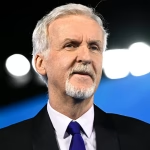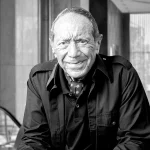A Cultural Shift Wrapped in Strategy
When Manchester-born rapper Aitch stepped into the 2025 series of I’m a Celebrity…Get Me Out of Here!, it marked far more than a moment of reality TV curiosity it was a masterclass in strategic brand repositioning. At just 25, Harrison Armstrong has already secured chart-topping hits, global collaborations, and lucrative brand partnerships. Yet, his latest move is not about fame it’s about redefining reach.
In an era where attention is currency, artists like Aitch understand that creative longevity depends not just on artistic output but on cultural omnipresence. The decision to trade the recording booth for the jungle campfire is a bold form of visibility arbitrage: transforming audience curiosity into renewed commercial capital.
This is not escapism from music it’s expansion into media ecosystems where visibility becomes equity.
From Studio Booths to Boardrooms
Aitch’s journey from Manchester’s rap scene to mainstream acclaim mirrors the trajectory of the modern creative entrepreneur. His breakout single “Straight Rhymez” (2018) turned internet virality into industry leverage. By 2023, he was collecting BRIT Awards, fronting campaigns for Adidas and Beats, and solidifying his position among the UK’s most bankable young artists.
Yet as streaming platforms saturate the market and AI-driven curation narrows discovery windows, even successful musicians face an uncomfortable truth: attention is volatile. The half-life of virality is shrinking.
In this context, Aitch’s appearance on a mass-market franchise like I’m a Celebrity reads as a deliberate pivot—a way to reintroduce his brand to a broader demographic. According to PwC’s 2024 Global Entertainment & Media Outlook, cross-platform exposure can increase long-term consumer recall by up to 34% in lifestyle and entertainment sectors. For artists, that translates into measurable brand uplift across sponsorships, merchandise, and catalogue streaming revenue.
In short, the jungle isn’t a detour; it’s a boardroom-level investment in sustained cultural relevance.

Aitch
The Economics of Exposure
Behind the apparent spontaneity of celebrity casting lies a robust financial logic. While appearance fees for headline acts on I’m a Celebrity typically fall between £100,000 and £150,000, the secondary revenue streams dwarf the upfront payment.
The real financial play lies in the halo effect post-show streaming surges, renewed playlist placements, and endorsement negotiations with brands hungry for authenticity. When musician Boy George appeared on the show in 2022, his Spotify streams rose 57% in the month following the broadcast (source: Official Charts Company). A similar trajectory could easily follow for Aitch.
Moreover, appearances like this often unlock licensing opportunities for sync placements and collaborations. In the influencer economy, visibility translates into deal flow. Each camera angle becomes a micro-asset of intellectual property—repurposed across platforms, from TikTok edits to corporate campaigns.
For artists turned entrepreneurs, this is the logic of cultural compounding: invest once in visibility, and reap ongoing dividends in multiple revenue streams.
The Leadership Behind the Persona
While Aitch’s charisma sells headlines, the true sophistication lies in his management’s strategic choreography. His team—spanning agents, financial advisors, and brand strategists has built a framework that treats fame like an investment portfolio.
Each move is weighed not just for exposure, but for alignment with corporate partners, audience expectations, and long-term positioning. The decision to step into reality television fits into a broader repositioning strategy: humanising a brand that has sometimes been seen as aspirational but distant.
Dr. Dionne Taylor, a marketing scholar at Goldsmiths University, explains this evolution succinctly: “Authenticity has become a measurable business asset. When artists cross over into unscripted media, they’re not abandoning artistry they’re expanding their trust capital.”
That trust capital, when nurtured, converts into financial stability. It strengthens negotiating leverage in brand deals, enhances public sentiment metrics, and even mitigates reputational risk during market downturns.
In many ways, Aitch’s move is the equivalent of a CEO repositioning a company toward a more inclusive audience segment—balancing legacy with reinvention.
Lessons for Leaders and Brand Builders
Aitch’s journey offers CEOs, CMOs, and brand strategists an unexpected case study in adaptive visibility. While the entertainment context is unique, the underlying principles are universal:
-
Relevance requires reinvention.
Market leaders—whether in music or business—can’t rely on past success. Sustained influence demands continual recalibration of message and medium. -
Narrative diversification builds resilience.
Just as companies hedge financial portfolios, brands must diversify storytelling platforms. Aitch’s move into television spreads exposure risk across multiple channels. -
Authenticity scales when it’s deliberate.
The paradox of modern branding is that strategic authenticity often outperforms spontaneous visibility. Aitch’s northern relatability and humour translate seamlessly into unscripted formats, reinforcing his core identity rather than diluting it.
In leadership terms, this is emotional intelligence turned into enterprise strategy. It’s the art of being human at scale a quality every CEO now requires in the social era.

Aitch
The Future of Celebrity as Enterprise
The fusion of celebrity and commerce has reached a new maturity. Where once brand-building was outsourced to agencies, today’s artists operate as integrated enterprises leveraging media, IP, and data analytics to steer their careers.
Aitch’s participation in I’m a Celebrity demonstrates how fame functions as a financial instrument. It’s not simply about gaining followers; it’s about increasing brand velocity the speed at which attention converts into revenue.
Looking forward, this hybrid model will likely define the next decade of creative entrepreneurship. Musicians, athletes, and influencers will behave more like startups experimenting across platforms, forming joint ventures, and measuring public perception with the same rigour as corporate KPIs.
For Aitch, the jungle is not an end but a pivot—a signal to investors, collaborators, and audiences alike that his brand is evolving from local talent to global enterprise.
And for business leaders watching, it’s a timely reminder: visibility without strategy is noise, but visibility with intention is power.
FAQs
Why would a successful musician like Aitch go on a reality show?
It’s part of a long-term diversification strategy. Reality TV offers cross-generational exposure, expanding his brand into new markets and partnerships that traditional music promotion can’t reach.
How does appearing on reality TV benefit an artist financially?
Beyond the initial fee, artists often see exponential growth in streaming, brand deals, and licensing. Reality exposure acts as a catalyst that refreshes market visibility and drives both active and passive income streams.














